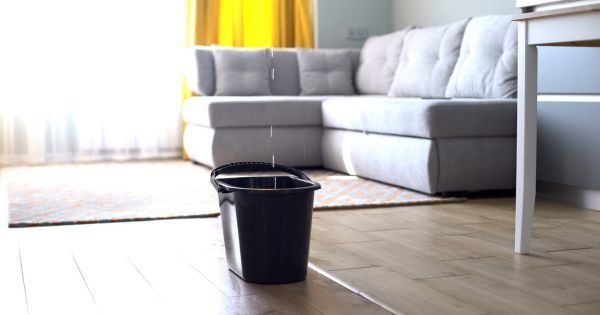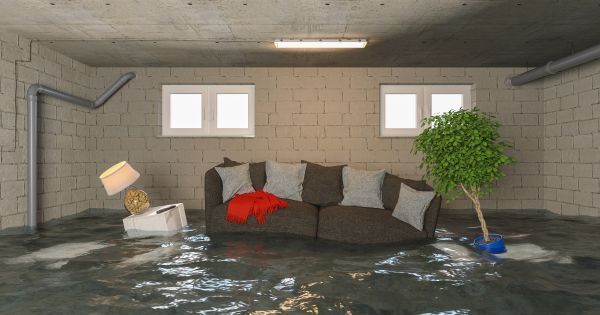
Preventing Basement Flooding from Snow Melt
As temperatures begin to rise, all the snow we have received is going to melt. It doesn’t take a rocket scientist to know that when this happens, the snow will turn to water, gallons, and gallons of water. This will put your basement at greater risk of flooding.
How do I prevent the snow melt from entering my basement?
The same way you keep rain water out of your basement…keep it away from your foundation! 1 cubic foot of snow produces around 3/4 gallon of water. If you have a couple of feet of snow piling up against your foundation, you’ve got a ticking time bomb that will result in a flooded basement if not dealt with. So how do you make sure the melting snow doesn’t end up in your basement?
- Clear a 5-foot area around your foundation: Clearing driveways and walkways are not the only things you should be clearing after it snows, it is also important to clear snow from your foundation to keep it from entering your home once it melts.
- Test your sump pump to make sure it’s working: Too many times sump pumps sit idle for months on end and when it’s finally time for them to do their jobs, they don’t work. Make sure it is functioning properly before disaster strikes!
- Fix any cracks in your foundation walls: Cracks in your foundation make the perfect pathways for water to enter. You can always buy an epoxy or sealing kit from a local hardware store for a few dollars to seal up these cracks. But keep in mind, even if you have no cracks in your foundation, concrete is porous! That means if enough water rests outside the walls, the water will eventually seep through the concrete and into your basement.
What if it’s too late & you already have water in your basement?
Like any other moisture issue, it’s always in your best interest to call a basement flood cleanup company, like swift restoration. Why? Because moisture issues that aren’t properly contained and mitigated can lead to things like structural damage and mold growth. Calling a trained professional will ensure that the water damage is handled and cleaned up properly to prevent these things from happening.
Steps we take after a flood
First, we would get the water out using a variety of different basement water extraction systems. Within a couple of hours, we can have the majority of the water out of your basement. However, this alone will not get the moisture out of your carpets, walls, foundation, etc.
To get out the remaining moisture, it must be evaporated using powerful drying equipment and dehumidifiers. We take moisture content readings throughout the basement to know what is wet and then place our equipment in a way that maximizes their drying ability.
Basement floods are close to the last thing a person wants to have happened, but if you follow these steps and pay attention to the water that could move towards your home, it can be prevented. If disaster does strike, be sure to remain calm, act fast, and call in a professional to help get it taken care of.
More To Explore
Our Service Areas In Ogden
Swift Restoration and Remodeling offers services in residential and commercial restoration for the following cities:
Get A Free Estimate
By filling out the form below
NEED HELP WITH DISASTER RESTORATION?
GET A FREE QUOTE TODAY
We are IICRC certified and hire only the most trustworthy and dedicated team members to ensure that each job is taken seriously and handled with absolute professionalism.
FIND US
Swift Restoration and Remodeling
2900 Pennsylvania Ave, Unit C Ogden, UT 84401
Map
All Rights Reserved | Swift Restoration and Remodeling




